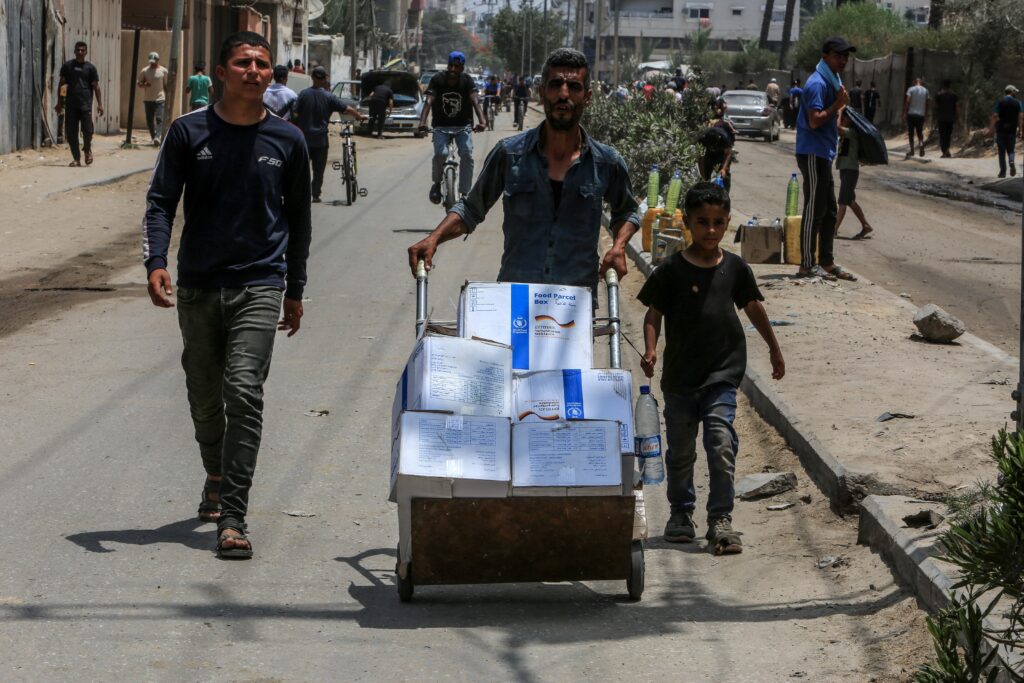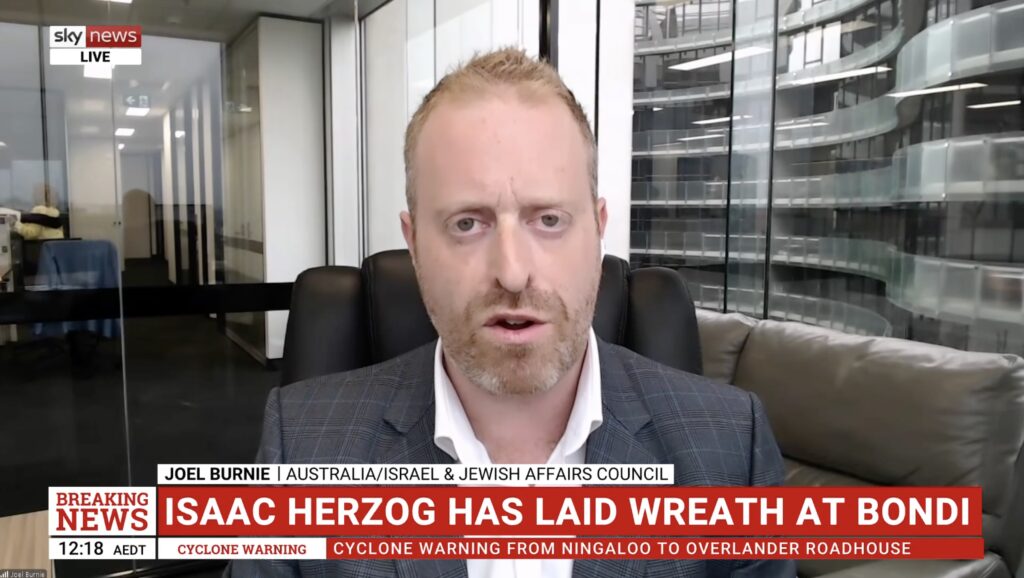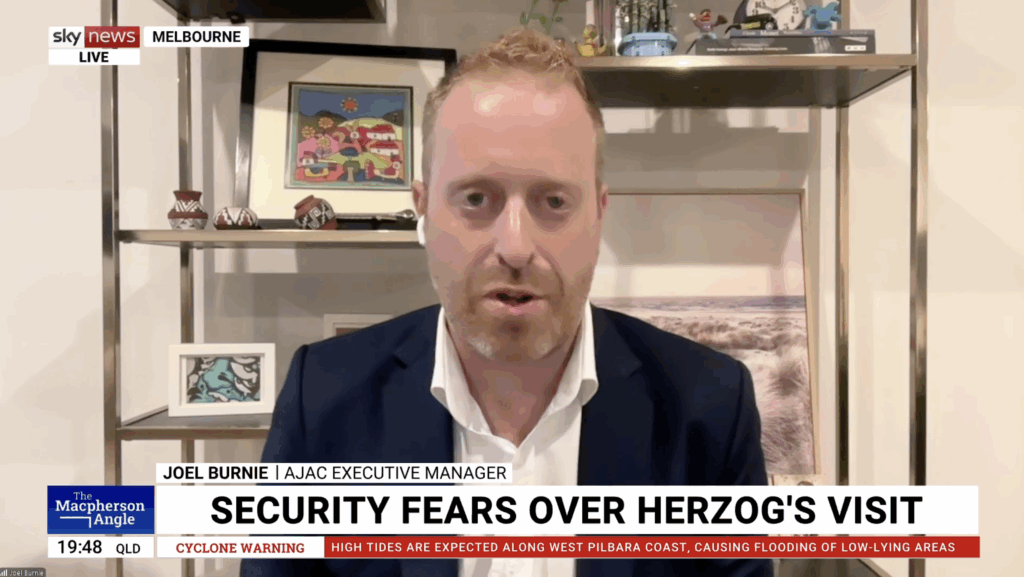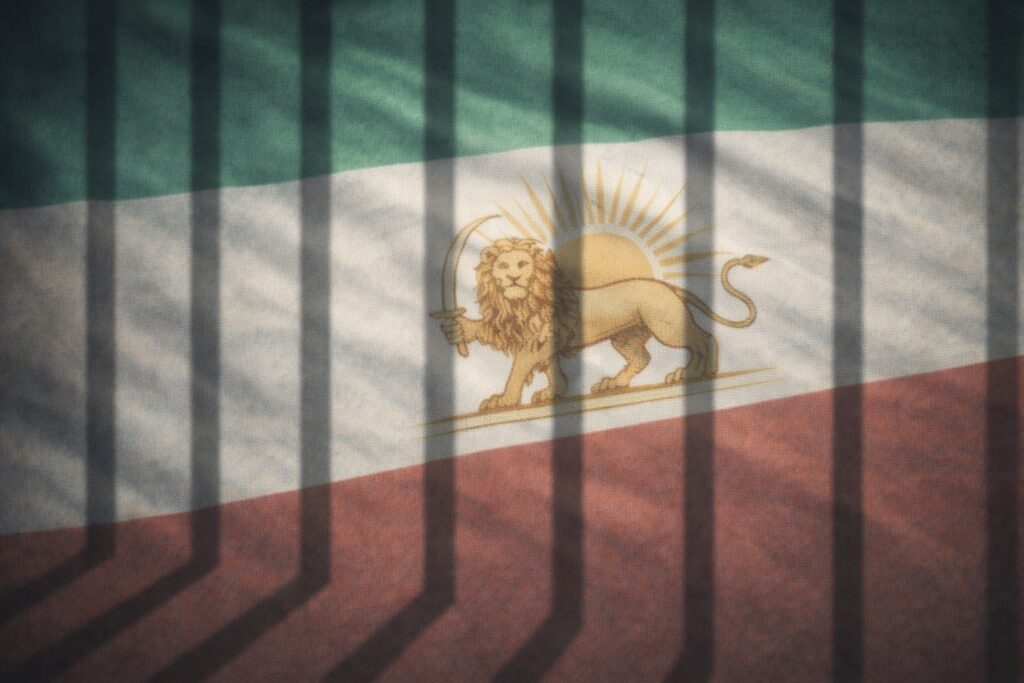IN THE MEDIA
Pull the plug on Hezbollah TV
August 11, 2009 | Bren Carlill
Bren Carlill
The Australian – August 11, 2009
THREE events have brought the words Muslim and terrorist together recently.
First, the arrest of several Somali and Lebanese-born Muslims who are alleged to have been plotting a suicide bombing attack on an Australian army base. Second, an ongoing project dubbed the “Lexicon of Terrorism”. Jointly run by the federal and Victorian governments, Victoria Police and Monash University academics, it is an effort to find the best way to refer to Muslim terrorists. At stake is the balance between accurately describing the identity and motivations of terrorists and the need to not alienate or cast suspicion on Australian Muslims.
Third is the recent finding by the Australian Communications and Media Authority that the ongoing broadcast into Australia of al-Manar, the television station run by Hezbollah, does not contravene ACMA’s anti-terrorism regulations.
How to describe the people arrested on terrorism charges last week is at the heart of the Lexicon of Terrorism project.
Polls have shown that since September 11, 2001, Muslims have felt increasingly marginalised in society. Terms such as “jihad”, “Islamist” and “Islamic terrorism’ are frequently felt as a slap in the face to Muslims, who feel they’re unfairly loaded.
Yet while a majority of Muslims aren’t terrorists, the majority of terrorists are Muslim, an uncomfortable fact that shouldn’t be ignored for the sake of political correctness. It is rare to find a Muslim terrorist who acts only for a secular, nationalist cause. The vast majority act, in part or wholly, according to their interpretation of Islam. We can decry this, but we shouldn’t deny it. Doing so removes the possibility of us understanding their motivations and thus, a pathway to prevent future terrorism.
“Islamist”, if understood properly, is a term that can be used without treading on toes. Islamists, a minority of Muslims, are those who see no distinction between Islam and politics. Violent Islamists, a minority of Islamists, are those who espouse or justify violence to achieve their religious-political goals.
Yet it’s is ACMA’s handling of al-Manar that says most about how equipped Australia is to deal with the terrorism threat.
Al-Manar is owned and operated by Hezbollah. Most famous for being a militia that fought the Israeli army for many years, Hezbollah refused to disarm after Israel withdrew from southern Lebanon to the international border in May 2000. That Israel no longer controlled any Lebanese territory – Hezbollah’s supposed raison d’etre – was confirmed by then UN secretary general Kofi Annan.
Hezbollah has also fired thousands of rockets at Israeli civilians; turned its guns on Lebanese civilians; bombed foreign embassies in Lebanon and elsewhere; kidnapped and held for ransom foreign civilians in Lebanon; and carried out multiple terrorist attacks in South America, the European Union and the Middle East. It is, unequivocally, a terrorist organisation.
Australia chooses to proscribe as a terrorist entity only Hezbollah’s external military wing. That means Hezbollah’s internal social, political and military wings are not considered terrorist entities by Australia.
This is a little bizarre, since Hezbollah’s leaders have publicly insisted there is no distinction between any wing. Australian law prohibits anyone donating to or raising money for any part of Hezbollah, because of the likelihood that money given, for whatever reason, will be used for terrorist purposes.
Thus, Australian law already de facto considers the entire Hezbollah organisation a terrorist entity.
ACMA’s regulations regarding terrorism are simple, though relatively weak. If a media outlet directly appeals for recruits for a terrorist organisation, or provides details as to how people can donate money for terrorist causes, it is to be banned in Australia.
This means that if a TV station glorifies terrorism, extols the virtues of suicide bombers, but falls short of directly appealing for recruits, ACMA considers it OK. Likewise, if people who have donated to terrorists are lionised, but funds are not directly solicited, ACMA doesn’t see anything wrong with it. This, according to ACMA, is the case with al-Manar.
ACMA watched the station for one week, looking in-depth at two of its shows. It found that al-Manar neither attempted to directly recruit people for Hezbollah nor solicit funds for the organisation. ACMA got it wrong.
It reported that al-Manar ran an advertisement soliciting funds for the al-Emdad Charity organisation. A little research reveals al-Emdad is a Hezbollah “charity” that gives money to the families of slain Hezbollah fighters. This is in contravention of Australian law.
But there’s a bigger issue at stake. Al-Manar has regularly broadcast material that incites people to violence, recruits terrorists and raises money for terrorist purposes. Such material is widely available on the internet. Just google al-Manar and MEMRI and you’ll find plenty of examples. (MEMRI is an organisation that monitors Middle Eastern media.) You’ll also find numerous examples of gross anti-Semitism, which contravenes Australia’s various racial hatred laws. Why ACMA chose to ignore this evidence – and why it chose to sample only one week of broadcast (and only examine in depth two programs) – is hard to explain and harder to justify.
But what is most amazing is that whoever drafts ACMA’s regulations believes it acceptable that an organisation that glorifies terrorism be broadcast into Australia at all.
In the same week it was revealed that Muslims living in Australia became radicalised here and plotted to carry out a terrorist attack, ACMA found it acceptable that other Australians be allowed to watch a TV station designed to do the same thing.
Most people, including most Muslims, would not be sucked in by al-Manar’s racist, violent indoctrination. But some might. These individuals are already vulnerable to radicalisation for any number of reasons. And that’s even more reason why a TV station such as al-Manar must be banned in Australia, as it is in the EU and America. While the Lexicon of Terrorism study quibbles about whether to use terms such as “Islamist”, or include “Muslim” and “terrorism” together, ACMA is allowing Australian Muslim youth the possibility of radicalising, and becoming the next Australian Muslim terrorists.
Bren Carlill is an analyst at the Australia/Israel and Jewish Affairs Council.
Tags: Australasia, Hezbollah





